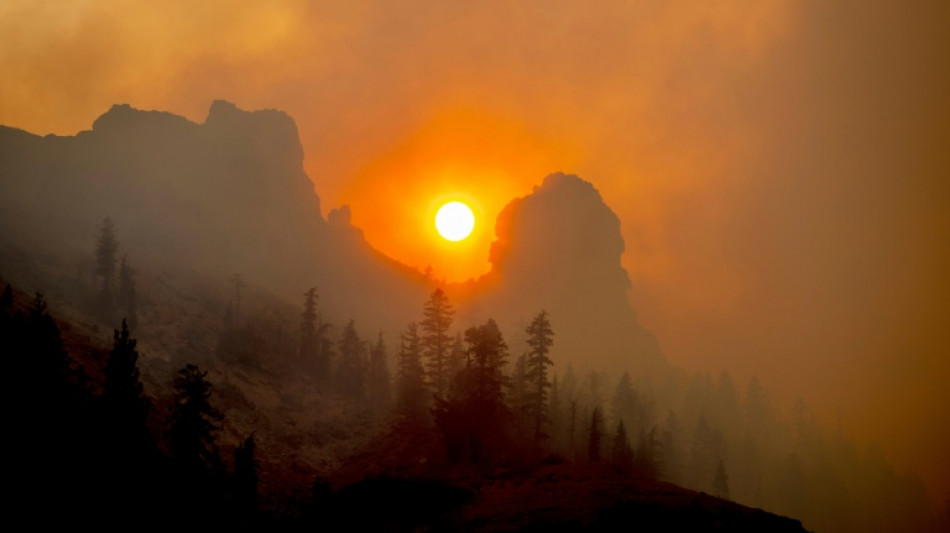
-
 Finnish ex-PM Marin says her female cabinet faced torrent of sexism
Finnish ex-PM Marin says her female cabinet faced torrent of sexism
-
Sudan army-backed council to meet on US truce proposal: govt source
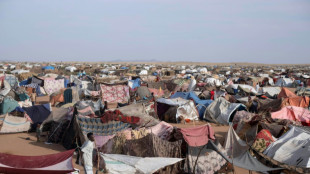
-
 BP profit surges despite lower oil prices
BP profit surges despite lower oil prices
-
Shein vows to cooperate with France in childlike sex doll probe

-
 National hero proposal for Indonesia's Suharto sparks backlash
National hero proposal for Indonesia's Suharto sparks backlash
-
Indian great Ashwin out of Australia's BBL after knee surgery

-
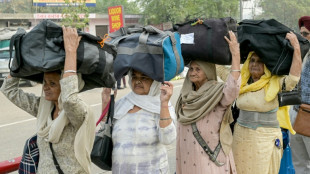 Indian Sikh pilgrims enter Pakistan, first major crossing since May conflict: AFP
Indian Sikh pilgrims enter Pakistan, first major crossing since May conflict: AFP
-
Asian markets slip as traders eye tech rally, US rate outlook

-
 Nintendo hikes Switch 2 annual unit sales target
Nintendo hikes Switch 2 annual unit sales target
-
Typhoon flooding kills 5, strands thousands in central Philippines
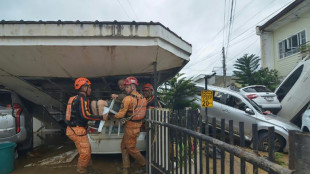
-
 Jobe Bellingham finding his feet as Dortmund head to City
Jobe Bellingham finding his feet as Dortmund head to City
-
US civil trial to hear opening arguments on Boeing MAX crash

-
 Jamie Melham on Half Yours only second woman to win Melbourne Cup
Jamie Melham on Half Yours only second woman to win Melbourne Cup
-
Myanmar scam hub sweep triggers fraudster recruitment rush

-
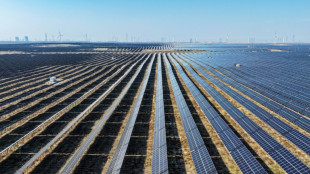 Biggest emitter, record renewables: China's climate scorecard
Biggest emitter, record renewables: China's climate scorecard
-
Floods strand people on roofs as typhoon pounds Philippines
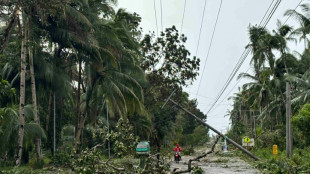
-
 Asian markets swing as trades eye tech rally, US rate outlook
Asian markets swing as trades eye tech rally, US rate outlook
-
South Korea to triple AI spending, boost defence budget

-
 Trott to leave as Afghanistan coach after T20 World Cup
Trott to leave as Afghanistan coach after T20 World Cup
-
Late queen's fashion to go on show at Buckingham Palace

-
 In Morocco, exiled Afghan women footballers find hope on the pitch
In Morocco, exiled Afghan women footballers find hope on the pitch
-
EU scrambles to seal climate deal ahead of COP30
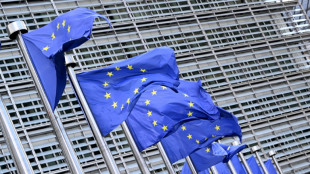
-
 New Yorkers expected to pick leftist Mamdani in stunning election
New Yorkers expected to pick leftist Mamdani in stunning election
-
Pining for Pinochet: how crime fanned nostalgia for Chile's dictator
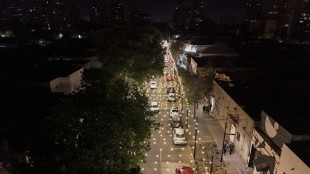
-
 Why an Amazon chef said no to a vegan dinner for Prince William event
Why an Amazon chef said no to a vegan dinner for Prince William event
-
Cement maker Lafarge on trial in France on charges of funding jihadists
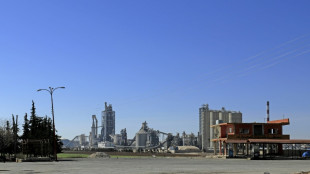
-
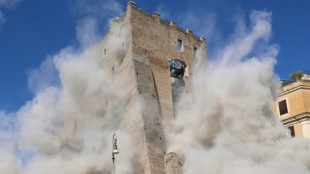 Worker dies after medieval tower partly collapses in Rome
Worker dies after medieval tower partly collapses in Rome
-
Run-machine Labuschagne in form of his life ahead of Ashes

-
 Prince William plays football, volleyball in Rio on climate trip
Prince William plays football, volleyball in Rio on climate trip
-
Jamaicans mobilize aid in aftermath of Melissa's wreckage
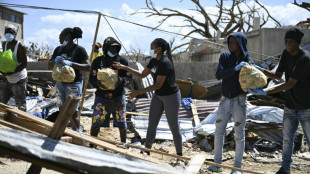
-
 Starbucks cedes China control to Boyu Capital
Starbucks cedes China control to Boyu Capital
-
'Wild at Heart' actress Diane Ladd dies at 89

-
 Xhaka lifts Sunderland into fourth after Everton draw
Xhaka lifts Sunderland into fourth after Everton draw
-
Brazil records biggest annual fall in emissions in 15 years: report
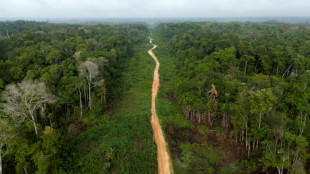
-
 Victor Conte, mastermind of BALCO doping scandal, dead at 75: company
Victor Conte, mastermind of BALCO doping scandal, dead at 75: company
-
Trial opens in 1st US civil case on 2019 Boeing MAX crash

-
 Barrett brothers out of All Blacks' clash with Scotland
Barrett brothers out of All Blacks' clash with Scotland
-
Medieval tower partially collapses in Rome, trapping worker
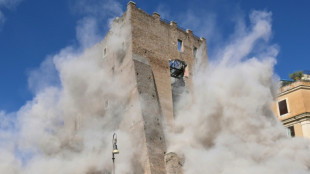
-
 Arsenal's Arteta says injured Gyokeres out of Slavia Prague tie
Arsenal's Arteta says injured Gyokeres out of Slavia Prague tie
-
Alonso says 'quality' Wirtz helped get him Real Madrid job

-
 US Fed's Cook warns inflation to stay 'elevated' next year
US Fed's Cook warns inflation to stay 'elevated' next year
-
Blue heaven: huge crowds salute Los Angeles Dodgers in victory parade

-
 Dutch centrist Jetten clinches election win: final tally
Dutch centrist Jetten clinches election win: final tally
-
Mamdani extends olive branch to anxious NY business community

-
 Sierra Leone chimpanzee sanctuary reopens after deforestation protest
Sierra Leone chimpanzee sanctuary reopens after deforestation protest
-
Shein bans sex dolls after France outrage over 'childlike' ones

-
 England full-back Steward doubtful for Autumn rugby clash with Fiji
England full-back Steward doubtful for Autumn rugby clash with Fiji
-
Bayern know how to 'hurt' PSG, says Neuer

-
 Rybakina downs Swiatek to reach WTA Finals last four
Rybakina downs Swiatek to reach WTA Finals last four
-
Ex-France international Ben Yedder to stand trial on rape charges


California wildfire pollution killed 52,000 in a decade: study
Pollution from California wildfires killed more than 52,000 people in a decade, a new study claimed Friday, as the western United States girds for a hot summer that could bring more blazes.
Vast areas of forest and grassland are scorched every year in California and other parts of the country, causing millions of dollars of destruction and sometimes costing lives.
But researchers say particulate matter released by the fires has a devastating effect on local populations that far outweighs the number of deaths directly attributable to them.
A study led by Rachel Connolly of the University of California Los Angeles found these tiny airborne pollutants -- known as PM2.5 because they are 2.5 micrometers or less -- are killing large numbers of people.
The team looked at data from 2008 to 2018 and isolated the amount of PM2.5 released specifically by wildfires, as opposed to that generated by other sources, like transport and manufacturing.
They found at least 52,480 premature deaths could be attributed to this specific pollution. The cost of treating people affected by the pollutants was calculated at $432 billion.
"The importance of wildfire management will only grow in the coming decades as aridification intensifies with climate change and more regions are susceptible to fires," the researchers wrote in their paper, published Friday by Science Advances, a peer-reviewed journal of The American Association for the Advancement of Science.
"These findings have direct implications for California, a state at the forefront of climate policy development with many fire-prone regions and a diverse population to protect," they added.
"Growing the evidence base on health impacts from wildfires and other climate-related exposures is critical."
The study comes as much of California and other parts of the American West are sweltering under the first heatwave of the year.
Temperatures as high as 120 degrees Fahrenheit (49 Celsius) scorched Death Valley on Thursday, while Las Vegas was broiling under 111 F heat.
The early summer heatwave has raised concerns that the fire season could be a fierce one in 2024 after two relatively benign years, thanks to wet winters.
For now, the blazes breaking out have tended to be grass fires, which are easier to control and do not burn as hot.
But as the summer heats up and the larger shrubs and trees start to dry out, they become vulnerable to downed power lines or discarded cigarettes.
After around 20 years of drought, and in a climate that is slowly aridifying, California has seen an alarming number of megafires this century -- 18 of the 20 biggest fires in the state's recorded history have occurred in the last two decades.
Wildfires are a natural -- and necessary -- part of the life cycle of wilderness.
But climate change, caused by humanity's unchecked burning of fossil fuels that pumps greenhouse gases into the atmosphere, is making them bigger, hotter and more unpredictable.
U.Maertens--VB




